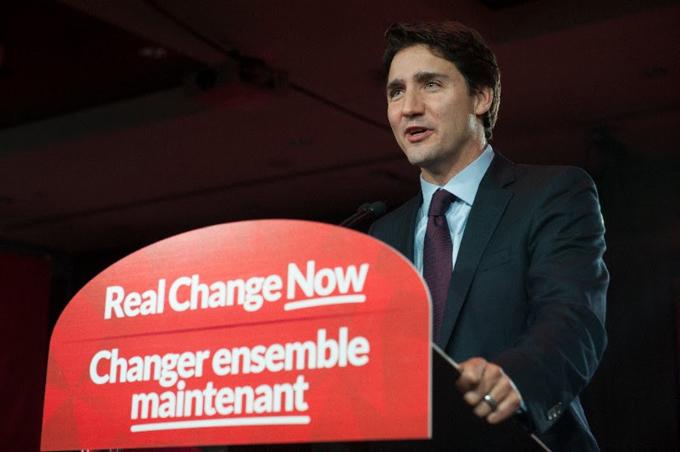By Dan Darrah
Last week, Justin Trudeau’s Liberals won a majority with a whopping 182 seats, sweeping the NDP in Quebec and the Conservatives in Ontario, gaining a little ground in Alberta and B.C., and totally — and unsurprisingly — rocking the Atlantic. We all know the quick-and-easy definition of a majority: the distribution of seats that makes it really damn easy for the governing party to pass legislation.
And, of course, from the get-go of Trudeau’s leadership, the Liberals pledged to legalize marijuana — so it is probably safe to assume that, yes, weed is going to be legal in Canada very soon. That means marijuana being sold in Canadian Tire, getting in the hands of babies, killing scores of people; basically, every warning on the Christians against Drugs Facebook group will come true.
However, there’s a silver lining: the revenue generated from a regulated marijuana market will be through the roof. In the U.S., pro-weed states like Washington and Colorado padded their wallets in the years since legalizing and regulating. In fact, Washington and Colorado collected $117-million and $83-million respectively in the first year and a half of legalization.
If the future Marijuana Board of Ontarios (MCBO) across the country can get demand high by keeping the costs near the going rate — the federal coffers are going to be filled to the brim with lots of cold and hard blood money. If individual states that have populations of 7-million (Washington) and 5-million (Colorado) can raise a combined $2-million, the projections for country-wide Canadian marijuana revenue are looking pretty damn good.
In fact, the University of British Columbia concluded that $2.5-billion could be raised over a 5-year period. An economics professor in Ontario said that Ontario could generate $60-million per year.
Trudeau hasn’t publicly made plans for where the new stream of cash is going to go. It could reasonably be used to help the Liberals balance out their long-run deficit-spending plan or fatten up a rainy-day contingency fund. But it could also be used to help restore the federal-provincial transfers that were cut in 1995 under Paul Martin — the cuts that caused the price tags on post-secondary education to skyrocket.
If you’re a student in Ontario, you’re probably well aware of the fact that, in the last 20 years, tuition in Ontario outpaced inflation by 601%. We pay an average of 29% more on tuition than students in other provinces do. Ontario students have the lowest per-student investment, and P.E.I., Quebec, British Columbia and New Brunswick face similar issues. Martin cut roughly $5-billion, pushing students to depend on loans, bursaries and tax credits.
In 1990, the average tuition cost was $2,607 per year. In 2012, it was $6,640. Future projections for the 2016/17 peg average tuition reaching a record-high of $8,756.
In the absence of funding, more than 50 per cent of university investment comes from private-donors, leading to overall corporatization and commercialization of higher education. The problem was explored in the indie documentary Whose University Is It which concluded that more privatization means higher tuition, less public oversight and control of the distribution of tuition dollars, the fattening of university administrations’ wallets, and a crack-down on critical thinking-friendly curriculums.
But the investment opportunities for weed could rebalance the scales.
In both Washington and Colorado, millions of dollars are being poured into the public school system after first being distributed to local governments where citizens voted where the new money would go, and the American Civil Liberties Union — a long time advocate — estimated a $244-million investment in healthcare.
If similar revenues were injected into Canadian universities, the price of education resembling pre-1995 levels would look less like a pipe dream and more like a genuine possibility.
While Trudeau hasn’t said how he plans to implement legalization and regulation, he has a markedly different view than did his predecessor, Harper, who had a policy on the sticky icky straight out of the 1950’s.
He called it “infinitely worse” than tobacco, and election-time Conservative literature warned that Trudeau’s pro-pot stance would wind up putting weed in the hands of kids. Think Abe Simpson: “old man yells at cloud.”
With Trudeau at the helm instead of Harper, we know we’ve got some elbow room now to have both a sensible drug policy and address skyrocketing tuition costs. Trudeau has got our attention now — but the ball is still in his court. Legal pot is a great start — but if it gets regulated, where that money goes is just as important.
I’m just shooting in the dark here — but, I mean, cheap post-secondary education and legal weed would be a pretty a-ok approach to capturing a youth vote that’s splitting amongst a few parties.












Leave a Reply